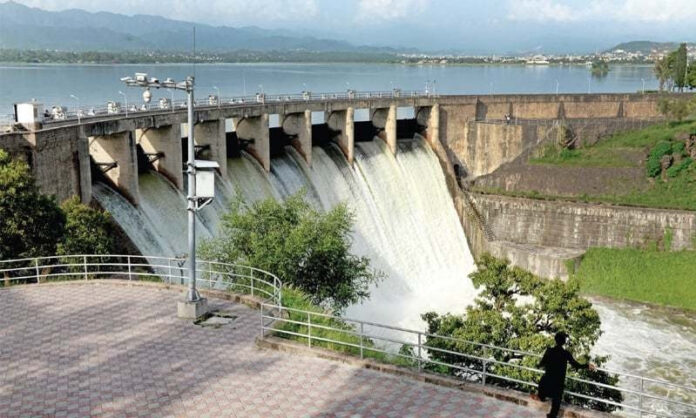- KP calls for NHP payments to be made based on Kazi Committee Methodology, approved in 1988
The Water and Power Development Authority (Wapda) and provincial governments continue to have differences regarding the Net Hydel Profit (NHP) methodology and the transfer of power projects to respective provinces, Business Recorder reported, citing sources.
According to the news report, a technical committee, consisting of representatives from Wapda and the provinces, is working to develop a consensus on a doable formula.
During the 5th meeting held on January 10, 2025, it was decided that members would present firmed-up proposals for discussion in the next meeting, with a report to be submitted to the Council of Common Interests (CCI) based on stakeholder input.
The Government of Khyber Pakhtunkhwa has called for NHP payments to be made based on the Kazi Committee Methodology (KCM), which was approved by the National Finance Commission in 1988, the Federal Cabinet in 1990, and the CCI in 1991.
The KP government maintains that these payments are a constitutional right under Article 161 (2) of the Constitution, further supported by a 1997 Supreme Court ruling in the Gadoon Textile Case.
The KP government has also proposed a second interim arrangement to settle outstanding dues by raising the electricity tariff by Rs.1/kWh.
The federal government has also reiterated its stance on transferring hydro power stations to the provinces. KP also suggested that CPPA-G, now the revenue-collecting agency for the power sector, should handle the NHP payments, instead of Wapda.
The Punjab government has raised concerns regarding the NHP calculation methodology under Article 161 (2), stating that the Kazi Committee Methodology is flawed as it only accounts for electricity losses at the point of generation, ignoring transmission and distribution losses.
Punjab argues that the Kazi Committee Methodology is non-implementable and violates the Constitution, as it fails to consider factors like the Energy Purchase Price, Capacity Purchase Price, and various tariffs that contribute to electricity pricing.
In its proposals, Punjab insisted that NHP payments cannot be resolved without addressing the methodology issue.
The federal government also noted that the power generation mix has shifted significantly, with thermal power now accounting for 70% of total generation, while hydel power’s share has decreased to 23%.
As a result, the provincial government has called for a new methodology that reflects these changes.
The CCI had tasked a committee to propose a solution for the NHP payments, but the ongoing disagreement between the federal and provincial governments continues to delay resolution.
The committee is expected to submit a report after further deliberations, with significant tariff increases expected in the coming years.




